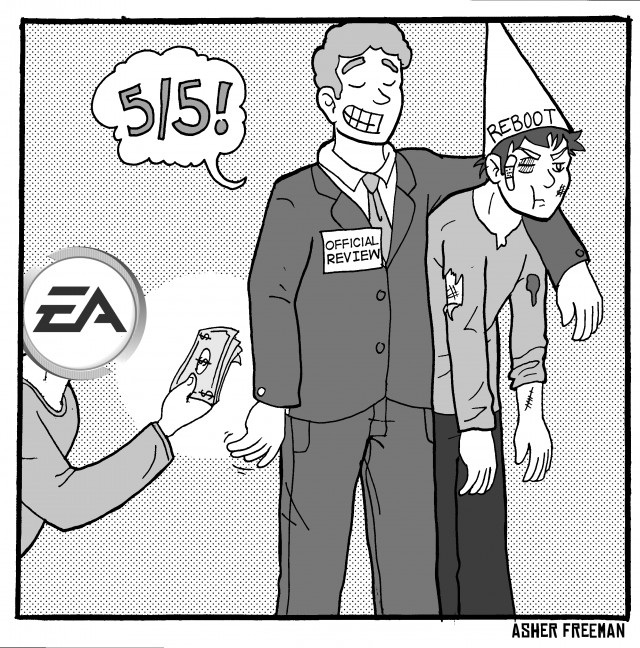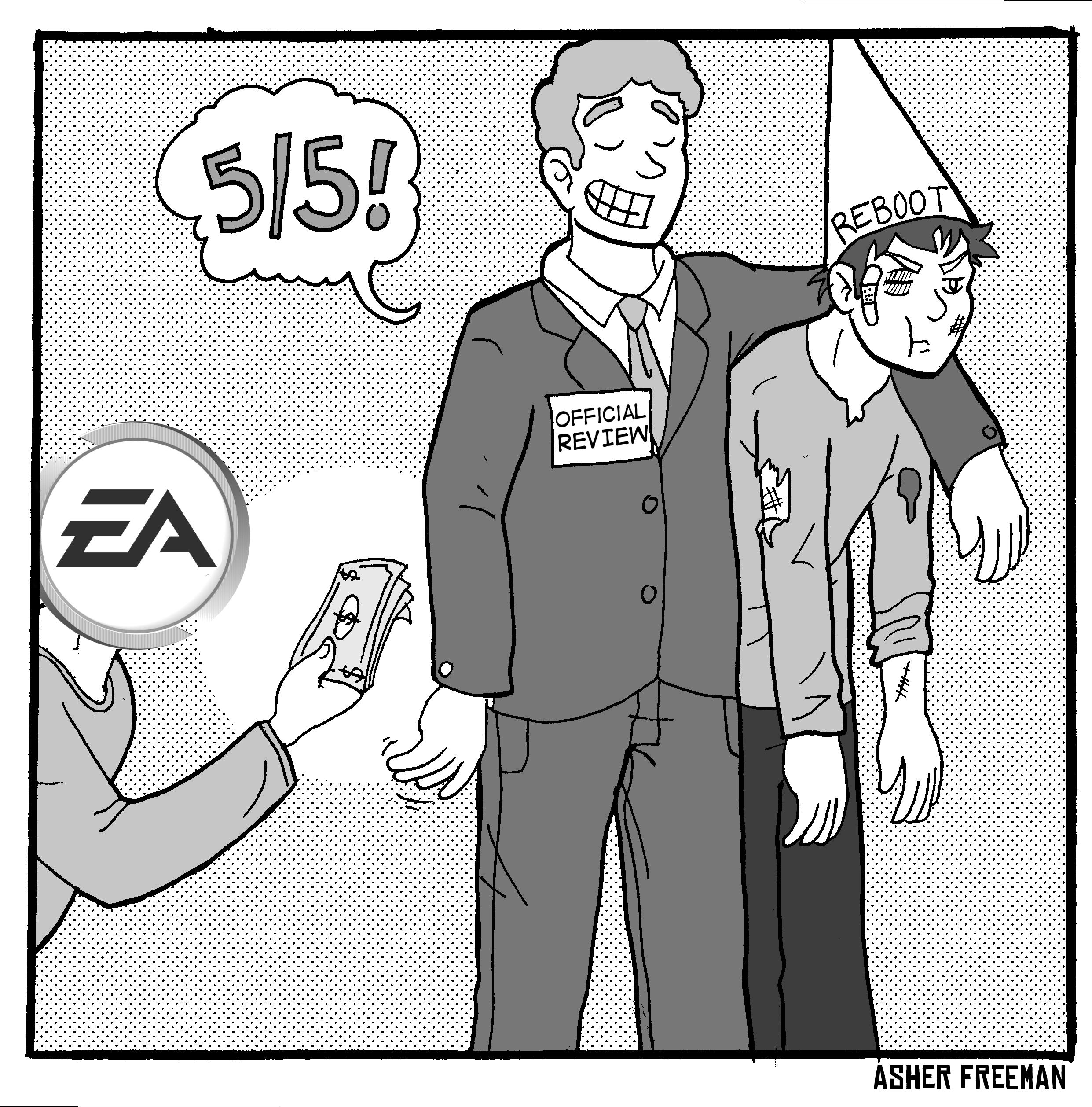 Electronic Arts used to be on top of the video game world. Carrying titles such as “Madden”, “The Sims”, various Star Wars games and “FIFA”, EA was once a well-respected video game developer.
Electronic Arts used to be on top of the video game world. Carrying titles such as “Madden”, “The Sims”, various Star Wars games and “FIFA”, EA was once a well-respected video game developer.
Oh, how the mighty have fallen.
EA has come under fire recently for controversy surrounding the game “Dungeon Keeper Mobile.” The game was originally poorly perceived because it pales in comparison to its original. Bullfrog Productions and EA originally released “Dungeon Keeper,” a real-time strategy game for the PC, in July of 1997. The game was very well received at the time.
On Oct. 10, 2013, EA released “Dungeon Keeper Mobile” for the App Store and the Google Play Store. The problem was that this new version is riddled with messages offering players a chance to purchase something that will speed the game up. EA slowed down the mechanics of the game and grinded it to a halt. Some areas of the dungeon even take a full 24 hours to unlock. In other words, EA intentionally released a worse version of “Dungeon Keeper,” and the only way to actually get a fun experience out of the game is to pay up.
This normally wouldn’t be a problem. After all, the rules of economics should take over and EA should pay the price of selling a bad product. The problem is that EA is manipulating the system by constructing a dishonest rating system and buying up its competitors.
On the Android version of the game, a message pops up every once in a while (in between the messages asking you to pour your money into the game) and asks you to rate the game. This shouldn’t be a problem. After all, most apps nowadays ask users to rate the app. That’s how potential buyers and downloaders know that other people have liked the product.
Two options pop up on the rating screen. One says, “Rate 5 stars,” and the other says, “Rate 1-4 stars.” As you would expect, rating the game 5 stars does just that. If you want to rate the game 1-4 stars, you are redirected to a page that gives you the opportunity to send feedback to EA. Unfortunately, your imperfect rating never gets applied. The only way to give the game a real rating, unless you want to give the game 5 stars for some reason, is to rate the game 5 stars and then change your rating in the Play Store.
But when players see a screen asking them for feedback instead of giving them the option to rate the game, they rarely care enough to jump through all of the hoops to give the game a fair review. This artificially inflates the game’s rating and cheats the system.
In a fair world, consumers would just turn to other companies. EA isn’t playing fair here either. In the last five years, EA has purchased ESN, PopCap Games, Firemint, Mobile Post Production, Chillingo, Playfish and others. EA has been criticized for buying up smaller companies to either squash competition or cash in on successful franchises produced by smaller developers.
EA has also gotten lazy with its developments because it doesn’t feel like it has to break new ground to turn a profit. Now that Madden doesn’t have competition in the NFL video game market, they can release what is pretty much the same game year after year with updated rosters. The Madden franchise used to have to compete with “NFL Fever” and games took strides in the right direction, but when was the last time a “Madden” game was released that was a significant improvement over the previous year’s game? The “Truck Stick” was introduced in “Madden NFL 06,” but since then, only minor tweaks like lead blocker controls and different game modes have been implemented.
In this era of gaming, ads and micro-transactions are sadly accepted as part of the trade. Thankfully, developers have not gone this route with PC and console games, but EA is doing its best to nickel and dime even us regardless of current trends.
Nowadays, developers release downloadable content (DLC) after a game has been on the shelves for some time. DLC allows players to add to their game by giving them new areas to explore or adding new items to a game. DLC can be free, but sometimes consumers are willing to pay a small price if they thoroughly enjoyed the game. EA has released what is sometimes called day-one DLC or same-day DLC. This is extra content that is released very soon after the game is available to the public. This means that EA could have just put the added content into the game, but instead wanted consumers to pay even more for content, which isn’t what DLC is supposed to be.
For the last two years, The Consumerist released survey results that labeled EA the “Worst Company in America,” the only company to win this title in back-to-back years. Those that took part in the survey cited EA’s insistence on micro-transactions, poorly handled DLC, and unreasonable piracy prevention techniques built into their games. The Consumerist summed up the people’s sentiments when it said, “When we live in an era marked by massive oil spills, faulty foreclosures by bad banks, and rampant consolidation in the airline and telecom industry, what does it say about EA’s business practices that so many people have — for the second year in a row — come out to hand it the title of Worst Company in America?”
Games should be fun, and EA has a habit of ruining the fun of video games. As consumers, it is our responsibility to refuse to accept this kind of business practice. It has gotten to the point where EA isn’t producing games. It’s producing money-grabbing gimmicks.






